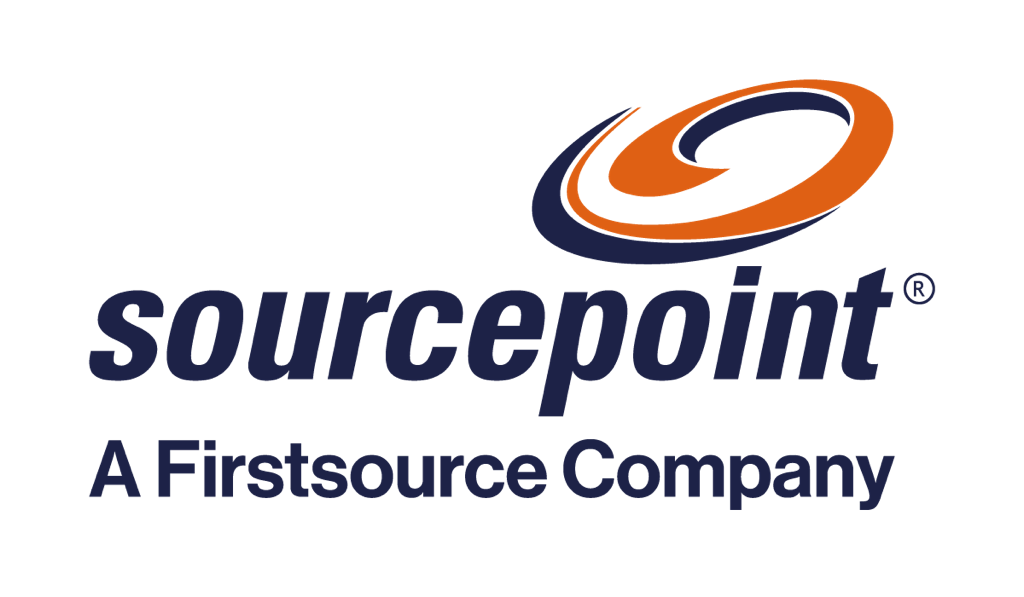Moderating content is of utmost importance but it also poses a significant challenge, to say the least. It holds paramount significance that we preserve the mental health of those tasked with overseeing online content, while they themselves preserve your platform users’ well-being.
According to recent data generation reports, 328.77 million terabytes of new information makes it into cyberspace daily. As a result, we have a dire need for professionals who can sift through the good, the bad, and the ugly of this endless influx of information. Enter content moderators.
These unsung heroes are responsible for identifying and removing inappropriate, offensive, or harmful content to shield you and those you care about from the harsh realities of the World Wide Web. However, their job comes with a lot of associated anxiety — which would take an evident toll on anyone’s mental state. So how can you foster a work environment that meets your operational needs and nurtures the psychological resilience required for sustainable content moderation? Let’s find out!
Trust and Safety responsibilities are impacting the mental health of moderators
The anonymity of the internet has made the dissemination of harmful information, ranging from explicit adult content to disturbing imagery and hate speech, more prevalent than ever before. Fortunately, professionals in Trust and Safety roles confront the darkest corners of the web every day to ensure a safer and more positive online experience for all.
Given the nature of the material they encounter, however, these agents often endure an inevitable strain on their own mental and emotional health. In the long run, this constant pressure may end up preventing them from adequately tending to their content moderation responsibilities. What’s more — it could affect them at a much deeper level.
The Impact of Unfiltered Content on Moderators’ Well-Being
As mentioned above, acknowledging your Trust and Safety staff’s psychological needs is a must in this day and age. Picture it as a win-win situation in which they get to preserve their mental and emotional integrity while you gain a more resilient and efficient team. Here’s a closer look at the challenges your content moderators may face.
Hypervigilance and Emotional Overload
Content moderators not only engage with a diverse ecosystem of well-intended information, opinions, and emotions. They also often confront aggressive, rude, and even defamatory posts with deeply ingrained biases.
The constant exposure to a multitude of voices and perspectives can be overwhelming, potentially exacerbating anxiety, depression, and other issues. The continuous flow of information demands constant attention, contributing to a heightened sense of vigilance and stress.
Severe Mental Health Disorders
Studies have consistently shown a direct link between content moderation and mental health challenges. Besides, the emotional toll is not limited to the professional sphere. At some point, it inevitably permeates to a personal level, affecting relationships and overall quality of life.
It’s essential to recognize that moderators, in their pursuit of creating a safer online environment, also navigate the deeper questions of meaning in life. The demanding nature of content moderation is one of the main contributing factors leading to various mental health disorders, including anxiety, depression, burnout, stress, compassion fatigue, and post-traumatic stress disorder (PTSD), to name a few.
Depersonalization and Emotional Detachment
Imagine immersing yourself in a torrent of online negativity day after day, witnessing the darkest aspects of human behavior unfold before your eyes. This relentless exposure can trigger a defense mechanism: emotional detachment. To cope with the constant influx of disturbing content, moderators might subconsciously numb themselves, disconnecting from their emotions to maintain their sanity.
This detachment can manifest in various ways. Trust and Safety workers might find themselves becoming callous toward online suffering, struggling to empathize with victims, or losing interest in personal relationships. The constant stream of negativity can also desensitize moderators to beauty and joy, leaving them feeling jaded and cynical.
Identity Crisis and Loss of Control
Witnessing the depths of human depravity can shake anyone’s faith in humanity, leading to an identity crisis. Moderators might start questioning their own values and beliefs, wondering if the darkness they encounter online daily reflects some inherent darkness within themselves.
The feeling of helplessness can be equally crushing. Moderators often face the Sisyphean task of cleaning up an ever-expanding ocean of negativity, knowing their efforts might make only a dent. This can lead to a sense of futility and loss of control.
The Impact of Moderation Challenges on Organizational Health
Stepping into the world of content moderation, professionals navigate a challenging terrain. Let’s dissect the various difficulties they face and how each impacts both the psychological well-being of the moderators themselves and the broader health of your organization:
Risk of Potential Legal Issues
Trust and Safety workers face the complex task of interpreting and applying complex legal frameworks to a wide range of content scenarios. However, neglect caused by burnout can lead to unintentional violations of legal boundaries — which exposes your business to potential lawsuits and other consequences. This issue often adds an extra layer of stress to an already demanding role, aggravating mental and emotional health problems or causing new ones.
Investing in ongoing legal education for your moderators will arm them with the tools and knowledge they need to make informed decisions. It will also help them protect their psychological well-being. This proactive approach fosters a sense of confidence and empowerment among moderation teams. In turn, it contributes to a legally resilient organizational structure while mitigating risks.
Loss of Credibility and Trust
Effective content moderation is the bedrock of building user trust. When problematic content goes unaddressed, the impact extends beyond the psychological well-being of your Trust and Safety team, putting your organization’s credibility at risk.
To strengthen social well-being, you must adopt transparent communication strategies and openly discuss your content moderation processes. This can help you demonstrate a strong commitment to user safety, maintain the integrity and trustworthiness of your brand, and safeguard your reputation and market position.
Spread of Misinformation
In an era when false news and other types of deceptive content can go viral within moments, the relentless need for rapid response and mitigation measures places immense stress on content moderators. Balancing the need for swift action with the psychological well-being of your Trust and Safety team can help you effectively combat misinformation and keep everyone happy on the job. Technological empowerment is crucial in this context, as it allows moderators to navigate the vast landscape of information with greater precision.
Decline in User Engagement
A drop in interactions can be an early warning of trouble, affecting the overall health of your online communities. That’s why you should proactively monitor user engagement metrics and turn to agile content moderation strategies to ensure a positive user experience.
The psychological impact of user disengagement is significant for moderation teams, which may feel a sense of responsibility over any adverse results. Gearing moderators up with the means to promptly address emerging issues gives them peace of mind, allowing them to focus on what matters the most. As a result, you can foster a safer and more engaging online environment that benefits your organization.
5 Ways to Prioritize Moderators’ Psychological Well-Being
A resilient and supported Trust and Safety team is crucial for a thriving online space. As mentioned earlier, unraveling the distinct challenges moderators encounter while performing their jobs and finding actionable solutions will enable you to amplify job satisfaction and performance. Here are some strategies to shield your team’s psychological well-being.
Set Boundaries to Protect Moderators and Agents
Protecting workers from the horrors of the internet can help you maintain a positive culture in the workplace. This ensures your content moderators can recover and sustain their well-being. If you want to keep your content moderators happy, you should enforce the following:
- Limiting exposure to egregious content: Moderators should not be subjected to an endless stream of disturbing material. Automated mechanisms that filter out or prioritize less harmful content can significantly reduce their exposure.
- Ensuring regular breaks and downtime: Continuous exposure to emotionally taxing content can overwhelm the mind’s coping mechanisms. Frequent breaks that allow moderators to step away from their screens and engage in restorative activities are crucial for maintaining their mental well-being.
- Defining clear working hours: Content moderation should not be an around-the-clock endeavor. Establishing defined working hours and avoiding work-related tasks outside of them can help moderators maintain a healthy work-life balance.
Applying limits to exposure to sensitive content
Proactively addressing the psychological well-being of content moderation teams involves leveraging technology. The use of AI and automation is a strategic measure to achieve this goal.
With rotating queues, for example, individuals are strategically assigned to review egregious content for a defined time limit. Subsequently, they transition to less disturbing content, effectively minimizing their exposure and allowing for a necessary psychological rebalancing.
Create an Extensive Well-Being Program for Moderators
Prioritizing emotional well-being requires a comprehensive and holistic approach. This extends beyond specific brand practices and encompasses emotional, physical, spiritual, social, and intellectual dimensions. That said, your Trust and Safety workers may appreciate:
- 24/7 online and on-site counseling through external partners
- Dedicated wellness managers and coaches
- Certified mental health first-aiders
- Ongoing psychological safety training
- Wellness check-in surveys
- Regular wellness breaks in tranquility rooms
- Engaging wellness activities and events
Consider Resilience When Choosing the Right People for the Job
Securing the psychological well-being of your moderation team starts with thoughtful recruitment, where resilience becomes a key criterion for selecting the most suitable hires. Beyond academic qualifications, your human resources team and hiring managers can focus on identifying candidates with a demonstrable ability to endure exposure to sensitive content.
Integrating psychological tests that assess resilience levels and other key personality traits ensures a more sustainable experience for moderators. Attributes such as the ability to objectively analyze situations and strong communication skills play a pivotal role in crafting a moderation team that can navigate challenges with fewer negative emotions.
Implement Regular Check-Ins With Team Leads and Managers
Periodically checking in with your moderators will make them feel seen and heard, promoting a healthier culture in the workplace. These interactions also serve as crucial touchpoints for identifying and addressing the potential causes of mental health problems. In addition, they offer a space to allow supervisors to guide moderators toward the support programs that are available when needed.
The Importance of a Holistic Approach to Trust and Safety
Looking to maintain a feeling of well-being among moderators and contributors? Embracing a comprehensive strategy entails recognizing the multifaceted aspects that contribute to a positive work environment. This includes:
- Incorporating mental health support programs
- Fostering a culture of open communication
- Providing avenues for skill development
A holistic approach not only safeguards the psychological well-being of those involved in Trust and Safety roles but also benefits the organization as a whole. You can empower your moderators to more effectively contribute to the digital communities they serve by fostering a workplace in which they feel valued, heard, and equipped with the right tools. Enforcing a solid citizen development model can even help you develop the latter among teams with no IT background.
Why Companies Need Partners With This Holistic Approach
Collaborating with companies that take a well-rounded approach to prioritizing the psychological health of moderators is not just a humane consideration but also a strategic demand. Not only will it help you provide your Trust and Safety staff with a sense of well-being, but it will also shield your brand from potential controversies and public relations challenges.
Additionally, the implementation of a comprehensive well-being program and resilient moderation strategy is a powerful testament to corporate responsibility. Demonstrating a commitment to the mental health of moderators sends a clear message to users and stakeholders. It lets them know that your company prioritizes ethical content practices that reduce the overall negative effects within your walls.
Discover a Trust and Safety Approach That Helps Moderators Across Organizations
Boosting psychological well-being in Trust and Safety roles requires a comprehensive approach, addressing both the human and the technological aspects. At Firstsource, we embody this commitment with 360-degree protective strategies, ensuring not only exceptional service but also the welfare of our team. To explore how our approach can enhance both your team’s well-being and your platform’s quality, connect with us today!










